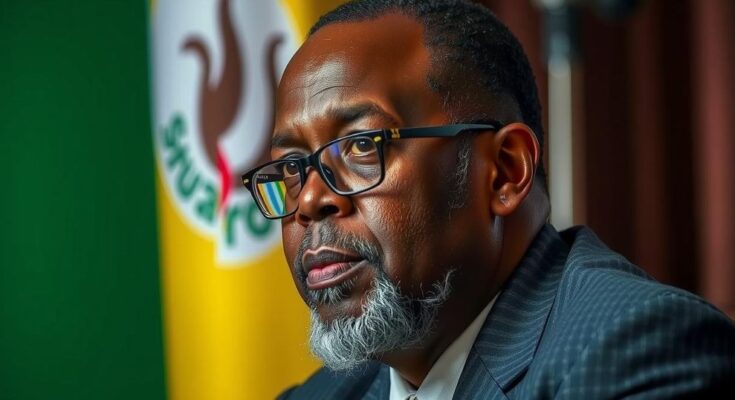Baltasar Ebang Engonga, Equatorial Guinea’s anti-graft official, is embroiled in a scandal involving approximately 400 explicit videos allegedly featuring him and numerous women, including high-profile individuals. The tapes were discovered during a fraud investigation and have since sparked outrage across social media. The Vice President has warned that sexual relations in government offices are prohibited, vowing disciplinary action against violators.
Baltasar Ebang Engonga, a prominent official within the Equatorial Guinean government, finds himself at the center of a significant scandal involving approximately 400 explicit videos. These troubling revelations emerged during a search of Engonga’s residence and office amid a broader fraud investigation into his conduct as the director general of the Anti-graft National Agency for Financial Investigation (ANIF). Authorities have reported that the footage includes intimate recordings featuring various notable individuals, including relatives of high-ranking officials and the wives of several country ministers. The videos, which were recorded in different locations including his office, have now circulated widely on social media, leading to public outrage. In response to the scandal, Equatorial Guinea’s Vice President, Teodoro Nquema, emphasized the strict prohibition against sexual relations in government workplaces, stating that breaches of this policy would result in severe disciplinary measures, including possible termination of employment. Engonga, while being a relative of the current president of the Economic and Monetary Community of Central Africa, had been tasked with overseeing essential investigations aimed at combating financial misconduct within the country. Reports indicate he is 54 years old and married with six children.
The case involving Baltasar Ebang Engonga highlights ongoing issues of corruption and misconduct within the Equatorial Guinean government. As the head of ANIF, Engonga was responsible for managing financial investigations that aimed at reducing corruption in the nation. However, the emergence of profoundly damaging evidence against him diminishes the credibility and integrity of his position. The attention brought to this case raises concerns regarding the ethical standards upheld by government officials in Equatorial Guinea, and it may prompt a reevaluation of accountability mechanisms within public institutions.
In conclusion, the scandal involving Baltasar Ebang Engonga serves as a stark reminder of the challenges faced by Equatorial Guinea in addressing corruption among its officials. The revelation of explicit videos and the subsequent fallout have not only tarnished Engonga’s career but also sparked a broader discussion on the need for strict adherence to ethical standards in the workplace. The government’s response to prevent such misconduct in the future will be critical in restoring public trust.
Original Source: www.nigerianeye.com




